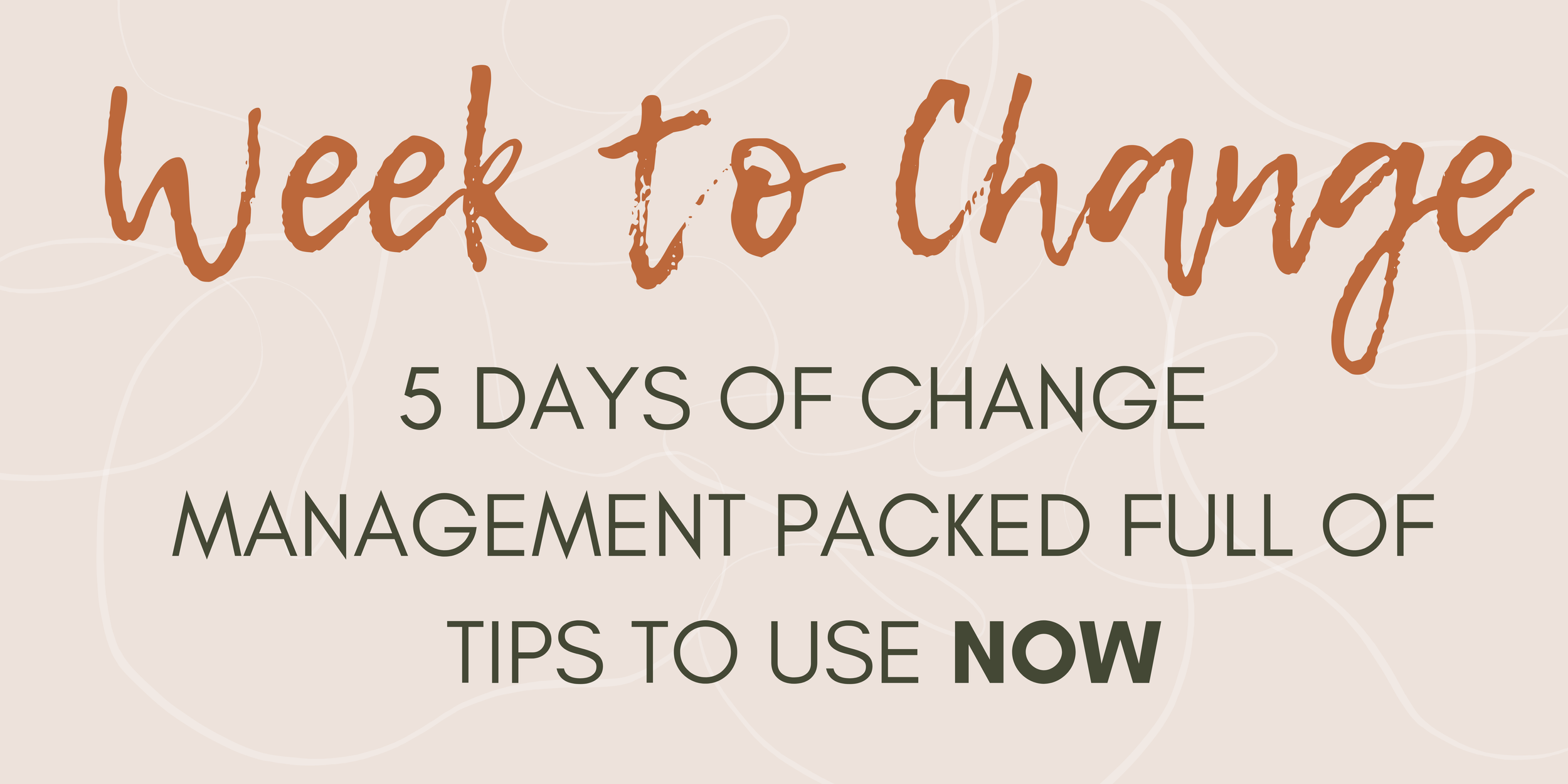What do you need from your past to make a successful change?
We all have a lifetime of experience making changes. Some are small and personal in nature (yes, wearing yoga pants as pants is now a thing), and others are more disrupting (hey mom and dad, I'm moving to a foreign country!).
Each time we consciously choose a new path, we are building on our history of change.
This accumulates over time and creates a bank of experience to draw from when contemplating a new change.
What does our track record with change mean for current and future changes that we are entertaining? The size, impact, scope, and nature of our accumulated personal history of change provide us with a wealth of information about what we have done well and what we will do differently.
Companies have the same past experiences with change to look back on and learn from. Unless you opened your doors yesterday or filed your patent or business paperwork last week, there are probably multiple instances of change, both large and small, to harken back on.
That implementation of the state-of-the-art software that was going to revolutionize your entire customer engagement process?
Oh my, that was not well landed.
People were pulled from their daily routine for hours of training, leaving the regular work unattended, impacting profits.
You were never able to implement all the features of the new software fully, so it was only partially launched.
The envisioned return on investment for this project was not realized.
And then there was the project to upgrade the entire team's reporting processes with both new equipment and software.
It got off to a bumpy start, but things actually turned out pretty well with a mid-course correction to the deployment plans.
Everyone got training for their new equipment, and they know how to use the new software for producing and tracking their work.
The return on investment was achieved in this case.
What do both of these examples have in common? Lessons learned, to be sure. But, even more importantly, they each provide the opportunity for a transparent message to the team about building on your experience with past change.
A lesson learned may be, "hire someone with the right skill set to help keep this work on track," but don't make it personal, or look for someone to blame for an unsuccessful change. Instead, look for the actual issues and missteps and how best to ensure that they do not happen again. In doing so, you demonstrate to the team that there's a will to build on what we have already experienced with change. When you embark on a new change process, using your past to take your message to the next level clears the decks for reestablishing your set point. People's memories are incredibly long - they not only remember past experiences with change, but they also have a strong opinion of how things went.
Drawing a clear set of lessons from the past, both good and not so good, and communicating that this will inform the new change work establishes credibility. That will help get people on board with the new initiative.
TIP OF THE WEEK
What are the 3 top lessons you have learned from personal change?
Reflect if you have used this information to help you make better change decisions going forward.
What did it take for you to incorporate the lessons learned from the past?
QUOTE OF THE WEEK
"It's natural for people to reject change because it makes them face our most feared state: incompetence.
Change Management acknowledges this is a natural resistance and addresses the root cause: a desire to be valued, able and competent." - Molly Angel
During the Week to Change email workshop, you'll learn how to address human factors in your organization or company, and get buy-in from your sponsor, client, or leader.
We'll cover how to build effective sponsorships, cover the "TRIZ" method, talk about why it's important to understand how you have failed (yes we said fail!) and provide you a real-world example of the power of change management and show you how you can apply these skills to your own life and career!

